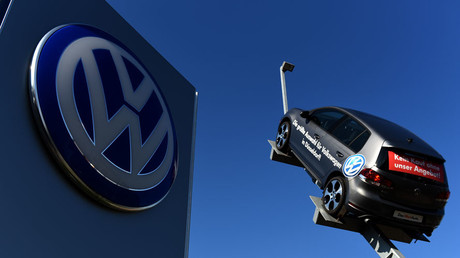“In the next few years we’ll see a major breakthrough in the development of technologies which will facilitate our lives… Hopefully, Hyperloop technology will be developed, and, as far as I know, the pilot project will be launched in December. We will see how the theory works in practice,” Liksutov said on Thursday at the Moscow Urban Forum.
A memorandum of understanding on Hyperloop was signed between Russia’s Summa Group and Hyperloop One at the St. Petersburg International Economic Forum earlier this month.
Last week they agreed to examine building a futuristic high-speed transport system in Moscow. The CEO of Hyperloop One Rob Lloyd said it’s unclear how much the system would cost.
Hyperloop involves using magnets to levitate pods inside an airless tube, creating conditions in which the floating pods could transport people and cargo at speeds of up to 750mph (1,200kph).
“The previous versions of magnetic levitation have traditionally been very expensive and Hyperloop One now plans to use passive magnetic levitation which really allows you to get levitation for a lot less energy,” Hyperloop One Product Engineering Manager Chris Vasquez told RT.
He also said the company is doing a lot of innovation to reduce cost.
Hyperloop was first proposed in 2013 by US billionaire Elon Musk as an up-to-date, open-sourced concept but there are no functioning Hyperloops in the world at the moment.
Skeptics say the idea of traveling at such high speeds in a sealed tube is like a sci-fi dream, while there are many challenges the designers will have to overcome, such as motion sickness.
Vasquez says Hyperloop One passengers don’t feel speed but the acceleration. “Our acceleration will be very benign. And once you’re at high speed will be cruising pretty constantly…”
“Safety is our top priority. We are isolating ourselves from the rest of the environment. You don’t have to worry about weather or air turbulence… we really prevent a lot of the accidents that occur on the outside world,” he added.
Article source: https://www.rt.com/business/349025-hyperloop-project-russia-technology/?utm_source=rss&utm_medium=rss&utm_campaign=RSS
